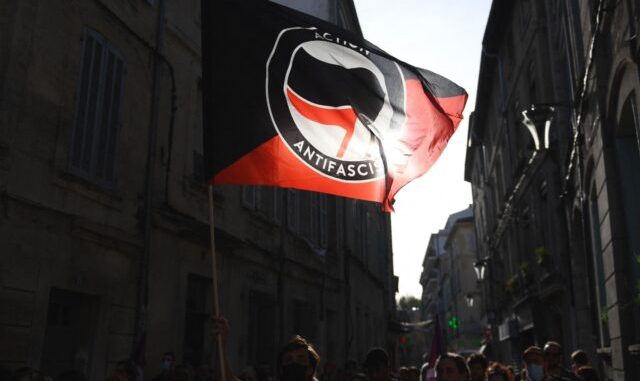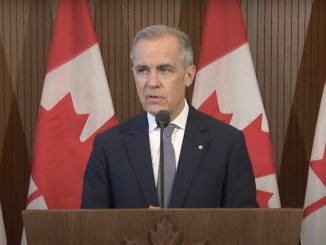
Published September 20, 2025
Hungarian Prime Minister Viktor Orbán has announced that Budapest will follow the lead of U.S. President Donald Trump in banning the far-left Antifa group as a terrorist organisation.
Hungarian Prime Minister Viktor Orbán has announced plans to formally designate Antifa as a terrorist organisation in Hungary, following U.S. President Donald Trump’s similar move. The statement signals yet another step in Orbán’s increasingly hard-right posture, aligning with a broader strategy of defining and suppressing left-wing activism.
What Orbán Has Said & Done
-
-
Direct Endorsement of Trump’s Move
Orbán explicitly praised Donald Trump’s decision to classify Antifa as a terrorist organisation in the U.S., calling it a “necessary and courageous step.” In a radio interview, Orbán remarked that Hungary should not lag behind, saying: “If America can recognize the danger of Antifa, then so must we. They are not activists; they are terrorists.” -
Hungary to Mirror U.S. Classification
He confirmed that Hungary’s Justice Ministry and security services have been instructed to begin the process of designating Antifa under Hungarian counterterrorism law. Such a designation would empower law enforcement agencies to treat Antifa-related activities with the same severity as Islamist extremism or organized terror cells. -
Reference to Past Violence
Orbán pointed to the 2023 “Day of Honor” incident in Budapest, where far-left activists, including international Antifa supporters, clashed with far-right demonstrators. Several were arrested after physical attacks. This event has since been used repeatedly by Orbán’s government as evidence of Antifa’s violent nature. -
The Ilaria Salis Case
Orbán emphasized the case of Ilaria Salis, the Italian antifascist activist accused of assault during the 2023 incident. Salis spent months in detention in Hungary before being released under house arrest, later winning a seat in the European Parliament. With parliamentary immunity, she avoided a Hungarian prison sentence, a development Orbán used to argue that Europe is “protecting terrorists.” -
Framing the Narrative
In his statements, Orbán described Antifa as part of a broader “international network of leftist radicals” supported by foreign influence. He portrayed the group as not just a domestic issue but as a global threat undermining national sovereignty, democracy, and public safety. -
Promise of Action
Orbán told Hungarian citizens that the government would “not hesitate to act firmly.” He hinted at new legislation or amendments to national security law that would close “legal loopholes” and allow authorities to more effectively dismantle groups connected to Antifa ideology.
-
Legal & Political Dimensions
-
Officially designating Antifa as a terrorist organisation would give the Hungarian government legal grounds to pursue punitive actions against individuals or groups deemed to belong to or support Antifa. This could include arrests, prosecutions, asset freezes, bans on association, or other state-security measures.
-
Critically, Antifa is not a single, structured organisation; it is generally understood as a loosely-affiliated ideology or movement rather than a hierarchical entity. This raises questions about how enforceable or legally sound any designation might be.
-
Domestically, Orbán’s government has long emphasized “national conservatism,” populism, and social order, often portraying left-wing or liberal elements as threats. This move furthers that narrative.
 Implications of Orbán’s plan to designate Antifa as a terrorist organisation, following Trump’s move in the U.S.:
Implications of Orbán’s plan to designate Antifa as a terrorist organisation, following Trump’s move in the U.S.:
Domestic Implications for Hungary
-
Expanded State Power: A terrorist designation gives Hungarian authorities sweeping powers — surveillance, asset freezes, arrests — which could be applied not only to violent actors but also to critics, activists, or protesters.
-
Chilling Effect on Dissent: Even peaceful left-wing movements or student groups could fear being targeted, limiting political pluralism and civic activism.
-
Strengthened Orbán Narrative: By labeling Antifa as a national threat, Orbán reinforces his government’s framing of Hungary as a state under siege from “foreign-influenced radicals,” bolstering his nationalist and law-and-order platform.
Legal & Political Implications
-
Blurred Definitions: Since Antifa is not a centralized organisation, the legal enforcement of such a ban is ambiguous — it risks being selectively applied.
-
Potential Legal Challenges: Courts and EU institutions could scrutinize the decision, raising questions about freedom of association and the proportionality of anti-terror measures.
-
Precedent Setting: If Hungary’s classification goes unchallenged, other governments in Europe could consider similar moves against loosely defined ideological groups.
International & Diplomatic Implications
-
EU Tensions: The EU, already wary of Orbán’s democratic backsliding, may see this as another erosion of fundamental rights, leading to clashes over EU law and funding.
-
Alignment with Trump: Orbán cements his position as Europe’s most outspoken ally of Trump, reinforcing an emerging transatlantic populist bloc.
-
Diplomatic Fallout with Allies: Cases like Ilaria Salis show that criminalizing Antifa can create direct diplomatic disputes, especially if foreign nationals are prosecuted under Hungary’s laws.
Broader Global Implications
-
Normalizing Ideology as Terrorism: Expanding the “terrorism” label from violent groups (like ISIS or Al-Qaeda) to loosely-defined ideological movements risks diluting the meaning of terrorism and weaponizing it politically.
-
Polarization & Radicalization: Suppressing Antifa could deepen polarization. Far-right groups may feel emboldened, while left-wing activists could be pushed underground, possibly escalating confrontations.
-
Authoritarian Playbook: Orbán’s step reflects a global trend where leaders use security laws to constrain opposition. This could encourage other leaders in Central/Eastern Europe — or beyond — to follow suit.
 Overall Takeaway:
Overall Takeaway:
Hungary’s decision to follow the U.S. in designating Antifa as a terrorist organisation is more than a symbolic gesture — it marks a significant step in Viktor Orbán’s long campaign to consolidate power, limit dissent, and position himself as the European standard-bearer of hard-right populism.
While supporters see this as a necessary measure to confront extremism and prevent violence, critics argue it blurs the line between genuine security threats and legitimate political activism. By treating a loosely-defined movement as “terrorism,” Orbán risks criminalizing dissent, straining Hungary’s already fragile relationship with the European Union, and setting a precedent other governments might exploit.
Ultimately, this move underscores the broader global shift in which counterterrorism frameworks are increasingly being applied to ideological adversaries rather than strictly violent actors. Whether Orbán’s initiative results in effective security policy or becomes another tool of political suppression will depend on how aggressively Hungary enforces the designation — and how the EU, civil society, and the international community respond.
SOURCES: BREITBART – Orbán’s Hungary to Follow Trump in Banning Antifa as a Terror Group
NEWSWEEK – Trump Ally Orbán Follows His Lead on Antifa
THE TIMES OF INDIA – ‘Indeed a terrorist organisation’: Hungary’s Viktor Orban on Antifa; praises Trumps’s recent decision





Be the first to comment